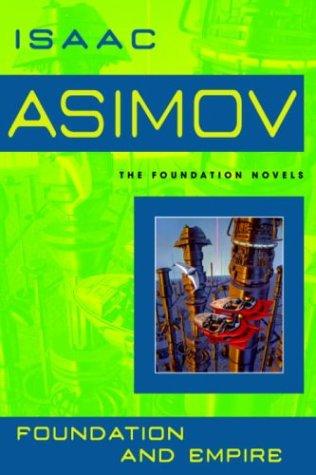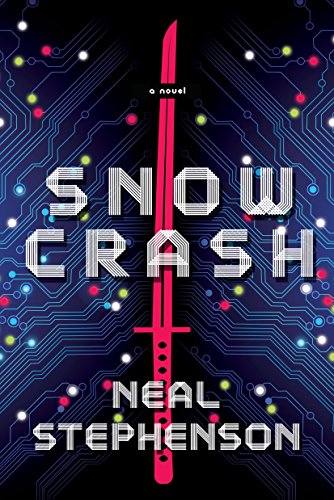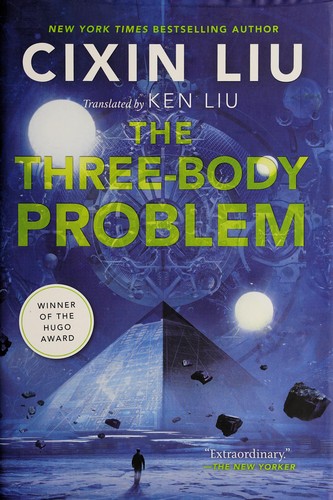This book is a detailed, somewhat lengthy account of the history of race in Washington, DC. While the authors focus mostly on Black and white relations, they do also cover Irish, Catholic, Chinese, and Native American history, when it is relevent to the history of DC. Though the topic of DC racial history may seem niche, it's clear after reading the book that much of history of racial relations in the US runs parallel to the history of race relations in DC. It's also clear that much of DC's history and politics, including its current disenfranchisement and demographics, is tied to racism in the city and the in the rest of the country.
Though I find many history books to be disorganized and hard to read, Chocolate City is quite readable and well-structured. The authors offer historical context when appropriate, synthesize accounts of individual activists into cohesive narratives, and avoid …
User Profile
I build software for a living so that I can buy books.
This link opens in a pop-up window
pulpdrew's books
To Read (View all 8)
User Activity
RSS feed Back
pulpdrew rated Foundation and Empire: 3 stars

Foundation and Empire by Isaac Asimov (Foundation, #2)
Led by its founding father, the great psychohistorian Hari Seldon, and taking advantage of its superior science and technology, the …
pulpdrew rated Snow Crash: 2 stars

Snow Crash by Neal Stephenson (A Bantam spectra book)
In reality, Hiro Protagonist delivers pizza for Uncle Enzo’s CosaNostra Pizza Inc., but in the Metaverse he’s a warrior prince. …
pulpdrew rated The Iliad / The Odyssey: 2 stars

The Iliad / The Odyssey by Homer, Robert Fitzgerald, Homer, and 8 others
The Odyssey (; Greek: Ὀδύσσεια, Odýsseia, Attic Greek: [o.dýs.sej.ja]) is one of two major ancient Greek epic poems attributed to …
pulpdrew rated Uncomfortable Conversations with a Black Man: 4 stars

Uncomfortable Conversations with a Black Man by Emmanuel Acho
Essays on racism and anti-racism in the context of early 21st century American culture, particularly with respect to anti-racism, and …
pulpdrew rated Cibola Burn: 3 stars

Cibola Burn by James S.A. Corey (The Expanse 4)
The gates have opened the way to thousands of habitable planets, and the land rush has begun. Settlers stream out …
pulpdrew reviewed Chocolate City by Chris Myers Asch
Review of 'Chocolate City' on 'GoodReads'
4 stars
This book is a detailed, somewhat lengthy account of the history of race in Washington, DC. While the authors focus mostly on Black and white relations, they do also cover Irish, Catholic, Chinese, and Native American history, when it is relevent to the history of DC. Though the topic of DC racial history may seem niche, it's clear after reading the book that much of history of racial relations in the US runs parallel to the history of race relations in DC. It's also clear that much of DC's history and politics, including its current disenfranchisement and demographics, is tied to racism in the city and the in the rest of the country.
Though I find many history books to be disorganized and hard to read, Chocolate City is quite readable and well-structured. The authors offer historical context when appropriate, synthesize accounts of individual activists into cohesive narratives, and avoid preaching any particular political ideology - even if one could hardly blame them for doing so. Overall, this is a good book if you think you might be interested in the history of DC or racism in the US.
pulpdrew rated The three-body problem: 3 stars

The three-body problem (Remenberance of Earth's past, #1)
Set against the backdrop of China's Cultural Revolution, a secret military project sends signals into space to establish contact with …
pulpdrew rated The Dispossessed: 5 stars

The Dispossessed by Ursula K. Le Guin
The story takes place on the fictional planet Urras and its moon Anarres (since Anarres is massive enough to hold …
pulpdrew reviewed Debt: The First 5,000 Years by David Graeber
Review of 'Debt' on 'GoodReads'
3 stars
Debt is an anthropologist's take on the history of money, debt, and political economy. The book is largely an attack on many of the assumptions mainstream economists make about human nature and human history. Foremost among those false assumptions is what Graeber calls the Myth of Barter - the idea that prior to money, trade happened only through barter. Graeber, like others before him, points out that a society or economy organized around barter has never existed. Instead, the earliest human societies organized trade around centralized communal distribution or (much more commonly) credits and debts, often elaborately measured and recorded.
Graeber then re-tells 5,000 years of economic history, arguing that history can be seen as a cycle between debt-based and money-based societies. He explains that the first money-based societies were largely an outgrowth of imperialism, war finance, and slavery. The general idea is that imperial states began to raise professional …
Debt is an anthropologist's take on the history of money, debt, and political economy. The book is largely an attack on many of the assumptions mainstream economists make about human nature and human history. Foremost among those false assumptions is what Graeber calls the Myth of Barter - the idea that prior to money, trade happened only through barter. Graeber, like others before him, points out that a society or economy organized around barter has never existed. Instead, the earliest human societies organized trade around centralized communal distribution or (much more commonly) credits and debts, often elaborately measured and recorded.
Graeber then re-tells 5,000 years of economic history, arguing that history can be seen as a cycle between debt-based and money-based societies. He explains that the first money-based societies were largely an outgrowth of imperialism, war finance, and slavery. The general idea is that imperial states began to raise professional armies and hire mercenaries. The soldiers, travelling far from home and not trusting that those around them would be around them for much longer, could not rely on credits and debts. At the same time, the states needed a way to mobilize occupied territories in support of their armies. The states, conveniently in possession of new slaves to work the mines and looted gold, began minting coins. They paid the soldiers in coins, then required occupied territories pay taxes in those same coins. Markets then sprung up around the armies as occupied people found ways to earn gold coins by providing for the soldiers. Oftentimes when the armies moved on, markets and coinage would dry up and locals would go back to using credits and debts for trade amongst themselves. States in China, India, and the Mediterranean all developed money in this way from roughly 500 - 300 BCE. Graeber notes that most major world religions arose around the same time, and argues that many of them are responses to debt crises and moral questions raised by cash economies. As empires fell and the Middle Ages began, power shifted away from governments and towards these religious institutions. Churches and temples sucked up gold and introduced new attitudes towards merchants, debt, and interest-bearing loans. As a result, society shifted back towards debt and credit, while still using the currencies of dead empires as units of account. The pendulum swung back towards cash economies in the 1400s due to relaxed attitudes towards interest and growing imperial aspirations in Europe, as well as demand for silver and gold in China. Graeber argues that we are currently in another great swing towards a debt-based society, and have been since 1971 when Nixon ended the international gold standard.
Throughout the book, Graeber also includes discussions about religious conceptions of debt, moral theories of various forms of economic relations, and "social currencies" that some isolated cultures use to organize relations and debts. I liked his acknowledgement that what libertarian economists often call the free market is in fact heavily reliant on enforcement of property rights (both physical and intellectual) and debt obligations, and that the distinction between the state and market is largely false because money and markets have always been intimately connected to state policy and politics. I also appreciated his general attitude that human nature and human history is complicated, and that intellectual frameworks that attribute human behavior to a single motivation (whether it be self-interest, honor, or mutual aid) are necessarily wrong. Overall, I found many of his insights to be extremely interesting, and I think most of his main ideas are convincing. However, his analyses sometimes rest on little more than anecdotes, obscure passages of religious texts, or even etymologies. Insofar as he makes critiques about the current state of the world, his statements strike me as slight generalizations, making me wonder if perhaps his historical observations (about which I am far, far less qualified to question) are similarly overgeneralized.
pulpdrew rated Tiamat's Wrath: 3 stars

Tiamat's Wrath by James S.A. Corey (The Expanse, #8)
Thirteen hundred gates have opened to solar systems around the galaxy. But as humanity builds its interstellar empire in the …
pulpdrew rated All Systems Red: 3 stars

All Systems Red by Martha Wells (The Murderbot Diaries, #1)
"As a heartless killing machine, I was a complete failure."
In a corporate-dominated spacefaring future, planetary missions must be …

Kindred by Octavia E. Butler (Black women writers series)
The first science fiction written by a black woman, Kindred has become a cornerstone of black American literature. This combination …
pulpdrew rated Persepolis Rising: 4 stars

Persepolis Rising by James S.A. Corey (The Expanse 7)
"The seventh novel in James S. A. Corey's New York Times bestselling Expanse series--now a major television series. AN OLD …
pulpdrew rated Autonomous: 2 stars

Autonomous by Annalee Newitz
Autonomous features a rakish female pharmaceutical pirate named Jack who traverses the world in her own submarine. A notorious anti-patent …






